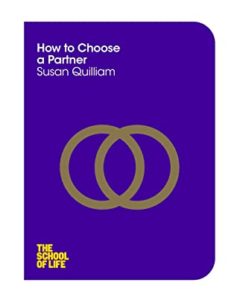Highlights & Annotations
“It makes absolute sense to gravitate to the people most like the ones who have made us happy in life, and most of the time that’s a wonderful strategy. But get expectations confused and it can go wrong. We can end up assuming a prospective partner will deliver the same kind of wonderful experiences that our parents (or our best school friend, or our very first ‘crush’) gave us. But partners don’t necessarily deliver, because they’re not that person and this isn’t the past – realizing this and accepting it is a key lesson of partner choice.” (35)
- // have lower expectations, humans are fallible
“...what happened in a partner’s life before the scenes they write with us affects not only who they are but also who they are when with us.” (37)
“...whether our expectations are met depends almost entirely on how long we've been stacking up those expectations.” (77)
- Keep expectations in check and don't get grandiose in your ideas
“...heartfelt mutual liking which leaves us feeling good about ourselves as well as about the other person.” (79)
“What do individuals want? Those of us who feel good around similarity will thrive with a partner as like us as possible. Those of us energized around difference will thrive with a dissimilar mate. It's not the dynamic itself – all variations can theoretically work – it's our comfort level that dictates success.” (90)
“I'm talking about emotional responsiveness – a partner’s ability to pay loving attention to our emotional needs and our ability to pay attention to theirs. Note the reciprocity. As well as needing to choose a partner who values our feelings, we need to choose a partner who motivates us to value theirs. However wonderful a suitor, if they don't Inspire us to respond, they're the wrong choice.” (95)
“...a huge element of successful decision-making is finding out whether each partner is both able and motivated to actually learn what the other person needs and what the relationship may demand.“ (103)
“...beyond ‘in love’ may not feel as intensely exciting, but it's what makes a relationship stay the course. ‘Love itself,’ says Bernieres, ‘is what is left over, when being in love has burned away.’ If we want a partner for the long-term, we need to discover what is ‘left over’.” (119)
“...if we decide to stay with someone in the hope they'll improve in time, we're not really committing to the person they are now but to future ideal that's highly improbable” (134)
